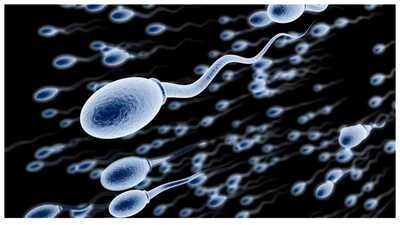Traditionally, it has been widely believed that as women age, their egg reserves start declining, and egg quality also dips, making it difficult for women to conceive or carry the pregnancy to term, especially after 35. However, a new study has supposedly flipped the narrative about male and female fertility patterns. Research conducted in 2025 shows that women maintain steady egg quality throughout their lives, despite common misconceptions. The scientific evidence demonstrates that sperm quality in men deteriorates substantially with age, thus disproving the traditional belief that fertility issues primarily affect women.
The traditional view
Women's fertility has remained closely tied to their age for multiple decades. The biological clock concept has persisted as a widespread belief, which states that women experience rapid egg quantity and quality deterioration after reaching their late 30s or early 40s. The cause for women's declining fertility during their late 30s and 40s became clear, because their egg quality and quantity decrease, and their risk of miscarriage and Down syndrome increases.

On the other hand, the general perception about male fertility showed that sperm quality remained stable until men reached an advanced age. The medical world directed most of its fertility warnings and reproductive health interventions towards women through egg freezing programs.
Flipping the narrative
The 2025 Science Advances journal published research from Penn State University, which challenged traditional beliefs about human biological aging. The research team analyzed mitochondrial DNA mutations within eggs from women between 22 and 42 years old, and compared these results to mutations found in different body cell types.
The energy-producing structures known as mitochondria contain their own tiny DNA sequences within cells. Scientists understand that mitochondrial DNA accumulates age-related mutations ,which lead to cell performance problems. The researchers predicted that older women's eggs would contain elevated mitochondrial DNA mutations, which would lead to decreased fertility with age.
The research team discovered that human egg cells maintain stable mitochondrial DNA mutation levels throughout a woman's life span. The research indicates that human eggs maintain their mitochondrial DNA quality at a consistent level throughout the ages 22 to 42. The mutation frequency in eggs remained constant throughout all age groups, while blood and saliva cells showed 17 to 24 times more mutations. The eggs possess natural defenses that protect them from acquiring these mutations.

The research results indicate that women's egg cells maintain their mitochondrial quality at a consistent level throughout their reproductive years up to age 42. The study results, however, do not indicate that women will experience no changes in their fertility. The quality of eggs depends on nuclear DNA mutations, which affect fertility and increase the risk of miscarriage. The research demonstrates that mitochondrial mutations do not serve as the primary factor behind declining female fertility with age, yet genetic factors continue to influence fertility and miscarriage risks.
The study shows that women experience biological age-related fertility issues, but their egg mitochondria maintain better stability than scientists initially believed.
Men, too, have a biological clock
The scientific evidence demonstrates that sperm quality in men deteriorates substantially with increasing age. The process of sperm regeneration in the body leads to DNA mutation accumulation throughout time. The genetic errors found in older sperm cells negatively impact fertility and lead to adverse pregnancy results and potential health problems in children.
Research conducted in 2025 demonstrated that paternal age creates higher chances for miscarriage and neurodevelopmental disorders, including autism in children. The study confirms that men experience a substantial biological time limit that affects their reproductive abilities.
What it means
The research findings provide essential knowledge for people who want to start a family. The research establishes that women's egg quality remains somewhat stable, yet men's sperm quality deteriorates with age, thus requiring equal attention to both reproductive health aspects.
The knowledge about shared fertility issues should reach all couples who plan to start a family. Men who postpone fatherhood will experience higher risks from sperm mutations , which parallel the fertility problems women encounter because of their age.
Tips for maintaining fertility
Women need to keep their gynecological appointments regular, while getting fertility tests when they reach their advanced age.
Men need to get fertility tests before they decide to become fathers when they reach older age.
A combination of exercise and proper nutrition, with no smoking and controlled alcohol consumption, leads to better reproductive health for both men and women.
The success rate of IVF treatments improves when couples understand the biological characteristics of both partners.
Disclaimer: This article is informational only and not a substitute for medical advice
The traditional view
Women's fertility has remained closely tied to their age for multiple decades. The biological clock concept has persisted as a widespread belief, which states that women experience rapid egg quantity and quality deterioration after reaching their late 30s or early 40s. The cause for women's declining fertility during their late 30s and 40s became clear, because their egg quality and quantity decrease, and their risk of miscarriage and Down syndrome increases.
On the other hand, the general perception about male fertility showed that sperm quality remained stable until men reached an advanced age. The medical world directed most of its fertility warnings and reproductive health interventions towards women through egg freezing programs.
Flipping the narrative
The 2025 Science Advances journal published research from Penn State University, which challenged traditional beliefs about human biological aging. The research team analyzed mitochondrial DNA mutations within eggs from women between 22 and 42 years old, and compared these results to mutations found in different body cell types.
The energy-producing structures known as mitochondria contain their own tiny DNA sequences within cells. Scientists understand that mitochondrial DNA accumulates age-related mutations ,which lead to cell performance problems. The researchers predicted that older women's eggs would contain elevated mitochondrial DNA mutations, which would lead to decreased fertility with age.
The research team discovered that human egg cells maintain stable mitochondrial DNA mutation levels throughout a woman's life span. The research indicates that human eggs maintain their mitochondrial DNA quality at a consistent level throughout the ages 22 to 42. The mutation frequency in eggs remained constant throughout all age groups, while blood and saliva cells showed 17 to 24 times more mutations. The eggs possess natural defenses that protect them from acquiring these mutations.
The research results indicate that women's egg cells maintain their mitochondrial quality at a consistent level throughout their reproductive years up to age 42. The study results, however, do not indicate that women will experience no changes in their fertility. The quality of eggs depends on nuclear DNA mutations, which affect fertility and increase the risk of miscarriage. The research demonstrates that mitochondrial mutations do not serve as the primary factor behind declining female fertility with age, yet genetic factors continue to influence fertility and miscarriage risks.
The study shows that women experience biological age-related fertility issues, but their egg mitochondria maintain better stability than scientists initially believed.
Men, too, have a biological clock
The scientific evidence demonstrates that sperm quality in men deteriorates substantially with increasing age. The process of sperm regeneration in the body leads to DNA mutation accumulation throughout time. The genetic errors found in older sperm cells negatively impact fertility and lead to adverse pregnancy results and potential health problems in children.
Research conducted in 2025 demonstrated that paternal age creates higher chances for miscarriage and neurodevelopmental disorders, including autism in children. The study confirms that men experience a substantial biological time limit that affects their reproductive abilities.
What it means
The research findings provide essential knowledge for people who want to start a family. The research establishes that women's egg quality remains somewhat stable, yet men's sperm quality deteriorates with age, thus requiring equal attention to both reproductive health aspects.
The knowledge about shared fertility issues should reach all couples who plan to start a family. Men who postpone fatherhood will experience higher risks from sperm mutations , which parallel the fertility problems women encounter because of their age.
Tips for maintaining fertility
Women need to keep their gynecological appointments regular, while getting fertility tests when they reach their advanced age.
Men need to get fertility tests before they decide to become fathers when they reach older age.
A combination of exercise and proper nutrition, with no smoking and controlled alcohol consumption, leads to better reproductive health for both men and women.
The success rate of IVF treatments improves when couples understand the biological characteristics of both partners.
Disclaimer: This article is informational only and not a substitute for medical advice
You may also like

Victoria Beckham reflects on 'hurtful' live TV weigh-in post son Brooklyn's birth

A famous TV star took a break of 5 years to be LESS FAMOUS and then made a career switch. Raghav Juyal's life and struggles

RBI appoints Sanjay Kumar Hansda as Executive Director

Cough syrup deaths: SC agrees to hear PIL seeking CBI Probe, nationwide drug safety review

In which countries can you make UPI payments, and do you need to change any phone settings?






